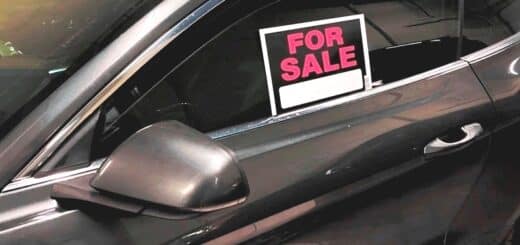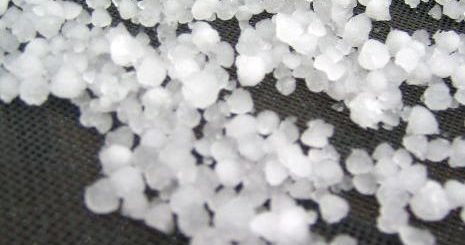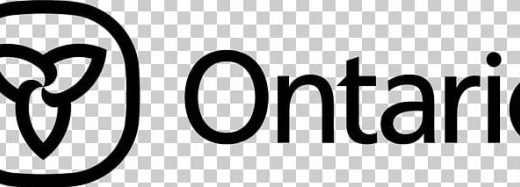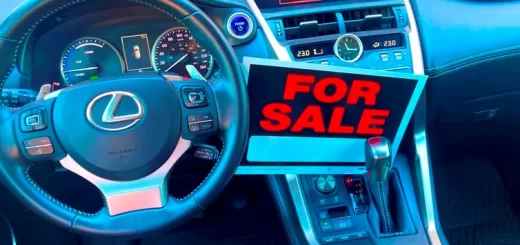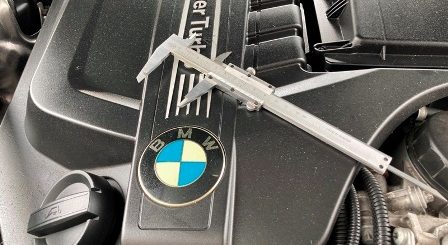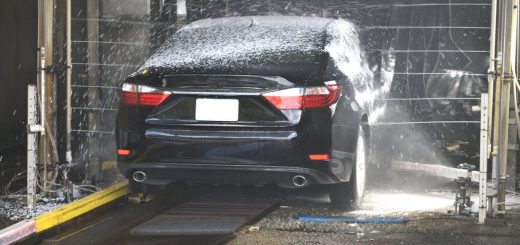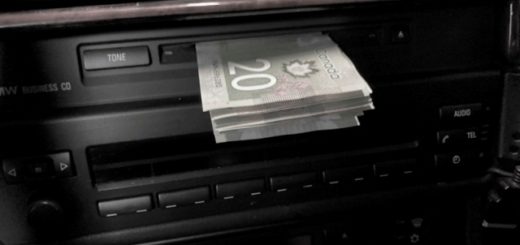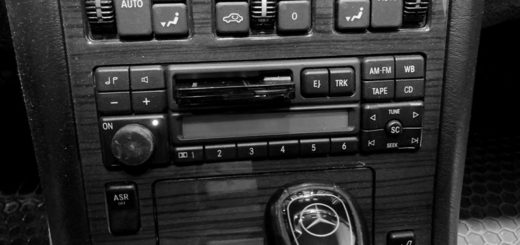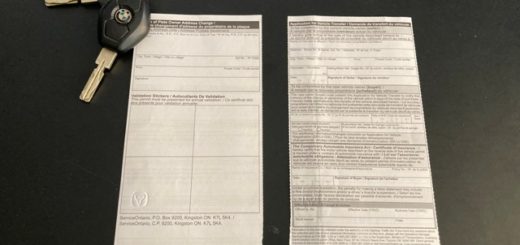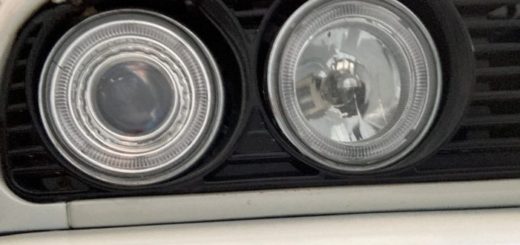Buying a Used Car in Ontario Guide
Buying a used car is usually a confusing and stressful experience for vast majority of people (in Ontario or anywhere else for that matter). Well, cars are second biggest expense of households and spending money you worked hard is always stressful.
However, information will be critical at determining which car fit your needs best, how to get the most out of your budget, reliability, fuel economy, safety, etc. It’s a long list, but we all been thru it at certain point. Some homework can take guessing and confusion out of equation when buying a used car in Ontario.
– Price is a big factor, you have to make your money go as far as possible and be able to negotiate as best as possible: How to Negotiate When Buying a Used Car.
– Mechanical condition should also be taken in consideration when buying a used car, costly repairs can add up quite fast if you buy a car with hidden problems. Make sure to know what to check and what to look for on a used car: What to Check When Buying a Used Car.
Buying a Car Ontario: Dealer vs Private
Not an easy choice when buying a car in Ontario and a compromise has to be made here. You have dealerships on one hand with higher prices but higher safety and reliability. Private sales on the other hand come with lower prices but lower safety and reliability.
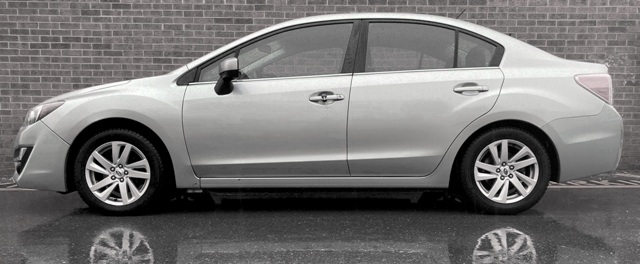
Start by doing research to figure out what to look for when buying a used car. Get familiar with problems and what to usually look for on used cars. Maintenance, rust, unusual engine noises, broken interior or electronic parts, body damages, steering feel, tire depth. In short, get a general feel of vehicle condition.
Never buy first car you see. Look at several used car prior to buying one, even if the first one meets all your expectations. Looking at several options will give you a better understanding on quality, reliability and price.
Dealerships Ontario
Buying from dealership is the safest way to buy a car presently (until something else gets invented). Dealers are regulated under MVDA Act and OMVIC. They have to abide to specified rules and laws when they sell a car to public.
Cars need to be safe to drive, have no hidden problems, free of liens or loans, clean vehicle branding title. Vehicle history has to be provided with full paperwork and a bill of sale signed and understood by both parties.
Dealerships provide financing, long or short term warranty, maintenance packages, etc. Main disadvantage of dealerships is price. As with anything else, services come at price when buying a car in Ontario and negotiations are harder with dealerships than private sales.
Another thing to bear in mind, prices you see advertised on dealer sales its not what you are going to pay. Dealerships usually add anywhere between $500 to more than $2,000 in extra charges on top of advertised price However, these charges are negotiable and you should negotiate them.
Private Sellers Ontario
Most private sellers are honest, however that does not means their car has no hidden problems which they do or don’t know about. You will find hundreds of cars in one place at dealership lots in Ontario but with private sellers you will have to roam around the city until you find something decent.
Main disadvantage buying from a private seller is: if something goes wrong, you are on your own. There are no guaranties or warranties in Ontario for regulating private sales. Buying a car from a private seller it becomes yours fast and forever, for better or worse.
If car you bough has problems you won’t be able to give it back or get any help from seller. You will have pay for parts and repairs yourself.
Main advantage of buying from private sellers is price. Majority of private sellers want to sell their car and get it over with as soon as possible. Since they don’t provide any services and have no expenses, private sellers are usually willing to negotiate prices much further than dealerships.
(If you are also looking for a fast and easy solution to sell your car, more here on “How To Sell Your Car Fast In Ontario”. )
Budget
If you have a modest budget, say $5,000 to $10,000, then reliability has to be your primary concern. Japanese made vehicles have a proven history for their well build quality and longer lifespan if properly maintained. Also, maintenance and repairs on Japanese vehicles are usually simple and affordable. Parts and labor are affordable compared to other manufacturers, especially European ones.
Generally speaking, used cars below $10,000 are a bit tricky as cars will have high mileage below price range. In addition, you will need to arrange for a pre purchase inspection, deal with private parties while negotiating and also taking time to find a car with maintenance records. High mileage adds wear on mechanical parts and previous maintenance (mechanical, fluids, tires, brakes, belts, battery and other) done by previous owner becomes very important.
One thing to bear in mind, there are no cheap used luxury vehicles. A cheap high mileage BMW or Mercedes for example will require massive amounts of maintenance and repairs, all as expensive as it gets. Most often than not, these repairs surpass value of the car itself, by far sometimes.
As an example, a new Honda Civic price is almost half of a new BMW 3 series, however 10 years latter that same BMW 3 series will be priced much lower than a Civic. Its all about reliability and repair costs.
If your budget is tight, stay away from old high mileage luxury cars, especially European ones. There is no cheap luxury, it wouldn’t be luxury otherwise.
What to Check When Buying a Car in Ontario
Buying a car from a dealership is safer than private sellers. However this doesn’t mean you don’t have to do your own research on safety, history and condition of a car, regardless of where or from whom you are buying it:
1) Check for Liens Registered in Ontario
It’s very important to check for liens when buying a car privately. You don’t want to get stuck with a car you cannot use or even lose your money. Majority of new cars on roads are under financing. If you buy a car with lien on title and payments are interrupted, bank will reposes it and you will lose your car. More details here about Ontario Car Liens.
2) Check vehicle history prior to buying a car in Ontario
You don’t want to end up with a lemon, a car involved in severe accidents or a rebuilt branded vehicle. Carfax provides an extended vehicle history including liens. Cost is about $40 and can be easily purchased online.
Accidents reduce car value. Depending on number of accidents and accident severity value can be reduced by half in certain cases. Severe accidents ($10,000 or more) will reduce value as much as 30%. Rebuilt title can reduce value as much as 50% compared to similar clean title vehicles.
3) Check Vehicle Book Value
There are several online vehicle value estimators (Canadian Black Book, KBB Canada, Carfax). Also, you can look at cars listed for sale online to get a general idea of what fair value should be. Having a better understanding of car values prior to purchasing will give you confidence and make sure you don’t get ripped off.
Check local dealer and private listing to determine how much cars which you are interested in are worth, it will come handy latter on when you are negotiating purchase price.
4) Safety Certification Ontario
Doesn’t matter if you are buying a car from dealer or private, Ontario Safety certification inspection its a must have. Safety certification is not a warranty but at least makes sure a car is safe to drive and there are no major problems at time of inspection. More details on Safety Certification in Ontario.
5) UVIP Ontario
UVIP or Used Vehicle Information Package is provided by Ministry of Transportation Ontario. It is an obligatory document when selling or buying a car privately in Ontario. Cost of UVIP is $30 and is well worth it as it shows past owners, odometer readings, liens information and branding status.
UVIP will give you better understanding of vehicle past owners and odometer readings. Also, UVIP has information about Liens.
If vehicle is under financing UVIP will indicate “Liens Registered Against Vehicle”.
6) Check Vehicle Ownership
If you are buying a used car from a private seller, make sure to verify seller is rightful owner of the car. Ask for seller driver license and vehicle ownership prior to reaching a deal. Drivers license information should match information on vehicle ownership. Never buy a used car from someone who is not the present owner of the car.
There are Curbsiders and Scammers out there taking advantage of people buying and selling used cars privately. Doesn’t hurt to be careful.
Finding the Right Car That Fit Your Needs
- Insurance Cost
Insurance costs are going thru the roof in Ontario, something to keep in mind when buying a car. Different make and models will fall under different insurance rates in Ontario, make sure to get insurance quotes from different insurance companies prior to buying a car. As rule of thumb, sedans and minivans are cheapest to insure while sport cars and SUV highest.
- Fuel economy
Consider monthly fuel costs prior to purchasing a car. A 6 cylinder engine will have 20-30% more fuel expenses than a 4 cylinder engine. Turbo engines have different fuel economy than naturally aspirated engines and smaller cars have higher fuel efficiency that larger ones.
Awd and 4×4 vehicles have lower fuel economy that FWD or RWD ones. Make sure to find out what fuel type a vehicle requires prior to buying it. If it needs premium gas (91 Octane) then you are looking at $10 more for every fill up. Regular Gas vs Premium Gas
- Big vs Small Size Vehicles
Vehicle size is dependent on your needs and most likely you can’t do much about it. If you need a big car, you need a big car. However, there are differences in fuel economy and reliability for vehicles of same size. Example: same SUV will have a higher fuel economy with FWD configuration than AWD or 4×4 configuration.
- Vehicle Reliability
Check reliability. Do it yourself, don’t listen to anyone praising a car model when they are trying to sell you one. JD Power provides comprehensive car reliability reports.
Japanese vehicles for example have a higher reliability and fuel economy than European cars. European vehicles performance on the other hand is far better than Japanese vehicles, it’s a compromise.
- Safety and Performance
It will depend on your budget mostly but that doesn’t means you can’t get most for your money. Check safety rating of a vehicle online on IIHS or NHTSA websites. However, most cars produced in recent years have a “good” or “better” safety rating.
- Vehicle Mileage
Mileage is of primary considerations which determines vehicle value. Normally, a high mileage vehicle has higher chances of breaking down than a low mileage one. On the other hand, a high mileage car which has been taken care during its life by previous owner can de a good deal. Especially if it comes with a cheap or cheaper price.
Also, there are differences between vehicle brands. Some brands hold residual value even with high mileage (Japanese cars mostly). This is due to proven reliability and long lifespan of their engines and transmissions.
Average mileage per year in Ontario is 20,000 to 25,000 km. You can easily tell if a car has been normally used or overused during its life, simple math. A two year old car with 40-50,000 is considered normal use and mileage, but if a two year old car has 80-90,000km then its high mileage and overused for its age.
- Engine Performance
Performance comes at a cost, that cost is fuel economy and reliability. If you want a performance car make sure to check fuel economy and fuel requirements. Most performance cars require ‘Premium” fuel only, that’s 20 cents per liter more expensive than regular gas in Ontario.
Also generally speaking, due to complicated construction, higher horsepower and high compression engines, sport and performance cars have a lower reliability than normal ordinary cars. Also, engines and drive-trains of performance cars are usually labor intensive to repair, labor intensive translates to more expensive to repair.
- Taxes Ontario
Taxes in Ontario are the same (13%) when buying a car from a Dealership or Private Seller. On a dealership purchases you will pay 13% of total price on bill of sale. On private purchases you will pay 13% based on Ministry of Transportation Red Book value. However, if your purchase price is higher than Ministry of Transportation (or Red Book) value, they will charge you tax on your purchase price instead.
Details on How Much Tax You Pay When Buying a Used Car.
- Check for Odometer Rollback
Check for odometer rollbacks when buying a car in Ontario. Carfax history provides details of vehicle registration during its life and has mileage information included. Also UVIP provides mileage information each time plates has been renewed in the past or when vehicle has changed owners.
- Financing Options
Financing is not an option with private sales but it is with dealerships. Rates of financing will primarily depend on your credit history but different dealerships can offer different rates. Check financing rates and extra charges on several dealerships before you commit to buy.
Vehicle Ownership Registration Ontario
When buying a car from a dealership in Ontario, they will take care of registration transfer and vehicle plates for you, and should be free of charge. Private sellers don’t do that, you will have to transfer ownership yourself.
Documents Required:
– Original vehicle ownership portion (Ontario Vehicle Ownership)
– UVIP or Used Vehicle Information Package (UVIP)
– Driver License
– Safety Certification (Safety Certification Ontario)
– Insurance proof: valid insurance is obligatory to register plates on a car in Ontario. You can buy a car and transfer it under your ownership “As Is”. However, you will not be able to add plates without valid insurance proof.
– Proof of purchase: Use UVIP as a bill of sale for private sales.
In case you just bought a used car, General Maintenance and what to do after buying it.
(If you are also looking for a fast and easy solution to sell a car, more here on “How To Sell Your Car Fast”)
Comments: If you have any questions or suggestions related to this post or Used Car Toronto in general, don’t hesitate to use comment section below.


